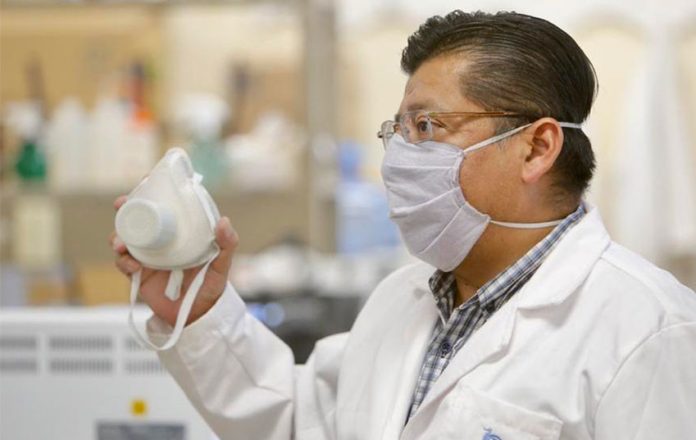Researchers at the Autonomous University of Hidalgo (UAEH) have developed various models of face masks with filters strengthened with extracts of the hibiscus flower.
The use of hibiscus, known as jamaica, as well as the mineral zeolite in one mask filter they developed allows it to stop up to 98% of particulate matter, said Javier Castro Rosas, a researcher at the UAEH Institute of Basic Sciences and Engineering.
He told the newspaper Milenio that the hibiscus/zeolite filter is superior to that in N95 surgical masks.
Castro said that researchers at UAEH have been working with hibiscus for 15 years and explained that it has a “significant antimicrobial effect.”
He added that they have been granted nine patents for disinfectants made with the flower. “With all that experience, we wanted to include hibiscus in face masks,” Castro said.
The researcher explained that hibiscus has at least six different substances with the capacity to destroy pathogenic bacteria.
“One is an acid called hibiscus acid that gives hibiscus its characteristic aroma, … this compound has been reported since the ’70s … but it wasn’t known that it has an effect against bacteria; we discovered it a couple of years ago and patented its use,” Castro said.
He and fellow researchers Esmeralda Rangel and Edgar Chávez used hibiscus in the filters designed for two everyday face masks. One is a disposable mask that will cost 20 to 25 pesos and the other is a washable cloth mask that will cost 50 pesos.
The hibiscus filters, which can be used for a week, will cost 10 pesos each but the price could go down if they are produced in higher quantities, Castro said.
“We’re not just putting jamaica [in the filters], it’s a mixture with other compounds such as vinegar. We’re taking advantage of the physicochemical properties of the material we’re using as a filter – it’s made of cellulose, … mixing this material with our formulation it becomes more rigid but it’s resistant and it causes particles to be stopped,” he said.
Up to 92% of particulates can be stopped by the hibiscus masks, the researchers found. They made another filter for medical-grade masks that uses both hibiscus and zeolite. It is even more effective at stopping potentially harmful pathogens.
“We’ve found that it has a greater [particulate] retention than N95 masks, … up to 98%,” Castro said.
“We haven’t worked with viruses but there are researchers in other parts of the world that have found that hibiscus has an antiviral effect. They’ve tried it against … hepatitis A, the measles virus, different types of human herpes viruses. A group of researchers even found recently … that it has an effect agains the influenza A H1N1 virus,” he said.
“Being there in the filter, the hibiscus has an effect against bacteria. Now we need to prove that it has an effect against the coronavirus.”
Source: Milenio (sp)
